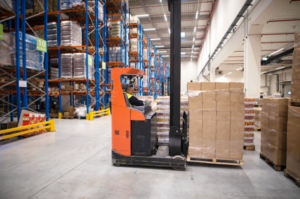
Introduction
In today’s ever-evolving financial landscape, staying ahead requires understanding market trends, leveraging innovative technologies, and utilizing the best tools at your disposal. Two key areas in this context are commodity trading and equity investments in the Nifty 50. Commodity markets have witnessed substantial commodity trading innovation, transforming how investors trade and manage risk. Simultaneously, demat accounts have evolved, offering features that streamline transactions, facilitate efficient portfolio management, and support detailed analysis of assets like the Nifty 50.
In this article, we will explore the latest innovations in commodity trading, how advanced demat account features can enhance the investment experience, and why a solid understanding of these areas is essential for anyone conducting a comprehensive Nifty 50 analysis.
The Role of Commodity Trading in a Modern Portfolio
Commodity trading has long been an essential tool for diversification and risk management in investment portfolios. By allowing investors to trade raw materials such as oil, gold, or agricultural products, commodity markets provide a hedge against inflation and market volatility. Over time, commodity trading innovation has dramatically altered how these markets function, making them more accessible, efficient, and appealing to a broader range of investors.
One significant development in recent years is the rise of algorithmic trading and artificial intelligence (AI) in commodities. Algorithmic trading uses complex mathematical models to make high-speed trades based on market data, reducing human error and increasing efficiency. Meanwhile, AI-driven insights provide traders with predictive analytics that can anticipate market trends, helping investors make better-informed decisions.
Another noteworthy commodity trading innovation is the introduction of blockchain technology. Blockchain’s decentralized nature ensures transparency and security in trading transactions, making it particularly useful for commodities, where fraud and counterfeiting have historically been concerns. For example, in the gold market, blockchain can be used to verify the authenticity of the gold being traded, ensuring that investors receive legitimate assets.
In addition, the rise of commodity-based Exchange-Traded Funds (ETFs) has also simplified access to these markets. Previously, investors needed specialized knowledge and platforms to trade in commodities directly, but with commodity ETFs, individuals can now buy shares representing a basket of commodities without the need to directly handle them. This innovation has made commodities more accessible to retail investors looking for ways to diversify their portfolios while analyzing broader equity markets like the Nifty 50.
Advanced Demat Account Features
The evolution of demat account features has played a pivotal role in streamlining the investment process for Indian investors. A demat account, or a dematerialized account, allows investors to hold their securities in electronic form, reducing the risks associated with physical share certificates and simplifying trading. Over time, these accounts have evolved, offering various features that can significantly enhance an investor’s ability to manage and analyze their portfolio.
One of the key demat account features is the ability to hold a wide range of assets, from stocks and bonds to commodities and mutual funds, all in one place. This consolidation allows investors to easily track and manage their investments across different asset classes, making it simpler to evaluate overall portfolio performance and make strategic adjustments when necessary. This is particularly useful for investors conducting a detailed analysis of the Nifty 50, as they can see their entire portfolio in relation to these key stocks.
Additionally, demat accounts now offer integrated research tools and data analytics that empower investors to conduct in-depth market analysis. Many modern demat platforms provide real-time access to stock charts, market news, and performance metrics, helping investors stay informed about the latest market trends. These tools can be instrumental when analyzing the Nifty 50, as they allow investors to track the performance of the top 50 companies listed on the National Stock Exchange of India.
Moreover, seamless trading execution is another benefit of advanced demat accounts. By integrating with online trading platforms, investors can execute buy or sell orders within seconds, ensuring they capitalize on market opportunities as they arise. Given the fast-moving nature of equity markets like the Nifty 50, this feature is indispensable for investors looking to make timely trades based on their analysis.
Comprehensive Nifty 50 Analysis
The Nifty 50 index is composed of 50 of the largest companies listed on the National Stock Exchange (NSE), spanning sectors such as banking, IT, pharmaceuticals, and manufacturing. Conducting a comprehensive analysis of this index requires investors to have access to robust tools, innovative strategies, and a thorough understanding of market dynamics.
One of the ways investors can enhance their Nifty 50 analysis is by incorporating insights from commodity markets. Given that commodities such as crude oil, metals, and agricultural products often have a direct impact on various sectors within the Nifty 50, understanding these relationships can lead to better investment decisions. For example, a spike in oil prices may boost the performance of energy-related companies in the index, but it could negatively affect transportation and manufacturing firms that rely on oil as an input.
In addition, using the advanced features of a demat account, investors can better analyze the performance of Nifty 50 stocks. With tools like stock screeners, charting software, and technical indicators, investors can identify trends, spot opportunities, and make data-driven decisions about which stocks to hold or sell. These features, combined with the insights gained from commodity trading innovation, provide a comprehensive approach to Nifty 50 investing.
Conclusion
In an increasingly complex and interconnected global financial market, successful investing requires a thorough understanding of both commodities and equities. The rapid commodity trading innovation we’ve seen in recent years has opened up new opportunities for diversification and risk management, while advanced demat account features provide investors with the tools they need to execute efficient trades and conduct detailed analyses.
For investors looking to gain an edge in the Nifty 50 index, leveraging both commodity insights and demat account technology is essential. By integrating these innovations into their investment strategies, they can achieve more informed, data-driven decisions that enhance their portfolio’s performance.
For beginners looking to get started, choosing the best trading app for beginners in India can provide a seamless introduction to both equity and commodity markets, offering the tools and guidance necessary to succeed in today’s fast-paced trading environment.







